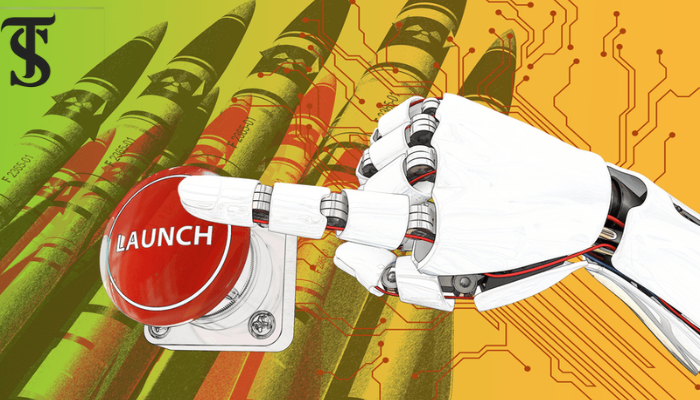Digital Diplomacy and Global Governance: The Influence of Technology on International Relations

- Digital diplomacy has revolutionized how countries communicate and cooperate internationally through digital platforms, social media, and real-time communication.
- It enhances transparency, public engagement, and crisis management, allowing governments to quickly disseminate information and coordinate responses.
- However, digital diplomacy also poses challenges like cybersecurity risks, misinformation, and privacy concerns that need to be addressed to maintain effective and ethical diplomatic practices.
The impact of technology on international relations is undeniable, with digital diplomacy emerging as a key development. This form of diplomacy uses digital platforms, especially social media, to communicate foreign policy, promote national interests, and engage globally. The rise of digital tools has revolutionized how states interact, offering significant benefits and challenges for global governance. Digital diplomacy reshapes traditional diplomatic practices and introduces new dynamics into international relations.
The Emergence of Digital Diplomacy
Digital diplomacy refers to using digital tools and platforms to conduct foreign affairs and promote a country’s diplomatic goals. Traditionally, diplomacy involved face-to-face meetings, written communications, and closed-door negotiations. With platforms like Twitter, Facebook, and Instagram, governments can communicate instantly with domestic and global audiences. This shift has expanded the reach and speed of diplomatic efforts, allowing countries to influence global conversations directly. For example, political leaders use social media to broadcast statements, engage with citizens, and respond to global events. This was notably evident during the Arab Spring, when social media played a key role in organizing protests and spreading political narratives.
Technology’s Influence on International Relations
Technology has transformed how countries communicate and cooperate, presenting both opportunities and challenges.
Opportunities in Digital Diplomacy
Increased Transparency and Access: Digital platforms make diplomatic communication more transparent. Public access to government statements, real-time updates on negotiations, and live-streamed discussions bring a level of openness previously unattainable. Citizens can stay informed about their government’s foreign policies, fostering global accountability. For instance, Russia tweets during BRICS summits to highlight its collaboration with emerging economies and views on a multipolar world order.
Speed and Real-Time Communication: One of the most transformative aspects of digital diplomacy is speed. The instantaneous nature of social media allows states to issue statements or respond to international events in real-time. This rapid communication helps countries manage public perceptions and react to global crises. For example, during the 2019-2020 Australian bushfires, leaders used Twitter to share emergency updates, coordinate international assistance, and mobilize resources quickly.
Public Diplomacy and Engagement: Digital diplomacy revolutionizes public diplomacy by allowing governments to engage directly with foreign populations. Traditional diplomacy was confined to elite networks, with limited public interaction. Today, governments use digital platforms to promote their cultures, values, and policies, reaching millions worldwide. Countries like the U.S., China, and Russia have used social media to advance international goals and cultivate soft power. Cultural exchanges and global campaigns spread through social media, influencing perceptions and fostering cooperation.
Crisis Management and Coordination: Digital diplomacy plays a key role in managing crises. Governments use digital platforms to coordinate responses, issue warnings, and request assistance. During natural disasters, social media enables immediate communication between countries and relief organizations. This rapid dissemination of information ensures more efficient global responses.
Cybersecurity and Data Protection: The increasing reliance on digital communication exposes states to cybersecurity risks. Hackers and rival governments can exploit vulnerabilities to intercept information or steal sensitive data. The WikiLeaks case highlighted how diplomatic communications could be leaked, causing crises. Governments must prioritize cybersecurity to protect diplomatic communications and national security.
Misinformation and Disinformation: While digital platforms promote transparency, they also make it easier for misinformation and disinformation to spread. False narratives and manipulated content can rapidly influence public opinion and undermine diplomatic efforts. Foreign interference in elections through social media manipulation has raised concerns about the integrity of democratic processes. This complicates diplomacy, as governments must navigate competing narratives and ensure accurate information prevails.
Changing Role of Diplomats: Digital diplomacy has altered the role of diplomats. Diplomats, once the sole communicators of foreign policy, now share the stage with social media influencers, ordinary citizens, and the global public. Diplomats must manage digital platforms, engage with the media, and respond to public demands. This shift requires new skills to effectively navigate the online diplomatic landscape.
Privacy and Ethical Issues: As digital tools become integral to diplomacy, privacy and ethical concerns arise. The vast amount of personal data collected on digital platforms presents privacy risks, particularly regarding surveillance, data mining, and unauthorized use. The manipulation of personal data, as seen in the Cambridge Analytica scandal, raises ethical questions. Governments must balance the benefits of digital tools with privacy protection and ethical standards.
The Future of Digital Diplomacy
Looking ahead, digital diplomacy will become more central to international relations. As technology advances, states will refine digital tools to engage foreign stakeholders, influence global discourse, and address international issues. Innovations such as artificial intelligence, big data analytics, and virtual diplomacy could enhance digital diplomacy, helping governments anticipate trends, manage negotiations, and automate diplomatic functions. However, states must address the challenges posed by misinformation, cybersecurity threats, and privacy concerns. Regulatory frameworks will be needed to ensure responsible digital diplomacy while protecting citizens’ rights and maintaining the integrity of international relations.
Conclusion
Digital diplomacy is transforming international relations by expanding how countries communicate and cooperate. The use of social media, digital tools, and real-time platforms has made diplomacy more transparent, faster, and more inclusive. However, challenges like cybersecurity, misinformation, and privacy concerns must be managed to maintain credibility and effectiveness. As technology continues to evolve, global governance will increasingly depend on how states adapt to the digital age, balancing the advantages of digital tools with ethical diplomatic practices. Digital diplomacy will complement traditional diplomacy, opening new avenues for international engagement.

Junaid Ali
The author holds a Bachelor’s degree in International Relations from the National Defence University, Islamabad.





